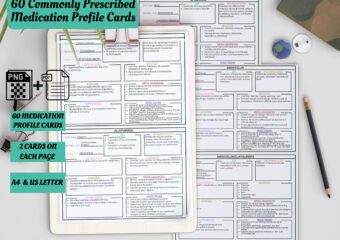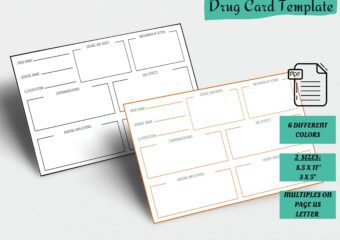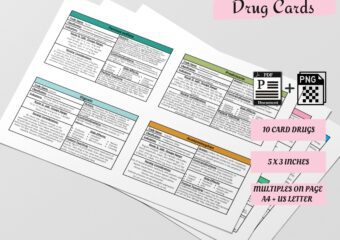Can a Nurse Write Prescriptions?

- How to Write Effective Therapy Progress Notes - January 7, 2025
- How to create SMART Goals in Therapy - October 8, 2024
- MICU vs SICU: What is the difference? - March 25, 2024
The nursing profession is a critical element within the healthcare system, comprising individuals who provide hands-on care, patient education, and support for families. They work in a variety of settings, including hospitals, clinics, schools, and homes.
Traditionally, nurses have been instrumental in administering medication, a duty that involves ensuring the right patient receives the correct medication, dosage, and route at the right time.
A question increasingly posed in modern healthcare contexts is: can nurses prescribe medication?
Understanding the Different Roles in Nursing
The nursing profession is multi-layered, with a variety of roles and specializations available, each requiring different levels of education and carrying distinct responsibilities. Here, we will primarily focus on two roles: the Registered Nurse (RN) and the Nurse Practitioner (NP). However, it’s worth mentioning that the field also includes other roles like Licensed Practical Nurses (LPNs), Clinical Nurse Specialists (CNSs), and Certified Nurse-Midwives (CNMs), among others.
- Registered Nurse (RN): RNs form the backbone of nursing care in many healthcare settings. They are often the primary point of contact for patients, delivering hands-on care, and coordinating the healthcare team’s efforts.
- Nurse Practitioner (NP): NPs are advanced practice registered nurses (APRNs) who have pursued further education—typically a master’s or doctoral degree—and have a broader scope of practice compared to RNs. They often specialize in areas such as family practice, pediatrics, or geriatrics.
Each nursing role comes with unique qualifications and responsibilities.
- Qualifications and Responsibilities of RNs: An RN typically holds a Bachelor of Science in Nursing (BSN), although some may start their careers with an associate degree in nursing (ADN). Their responsibilities encompass a wide range of duties, from conducting patient assessments, creating and managing care plans, administering medication (but not prescribing), to providing emotional support for patients and their families. They also play a vital role in educating patients about their health conditions and the necessary care at home.
- Qualifications and Responsibilities of NPs: NPs usually hold a Master of Science in Nursing (MSN) or a Doctor of Nursing Practice (DNP). In addition to many of the duties performed by RNs, NPs are qualified to perform several tasks traditionally reserved for physicians. These include diagnosing and treating health conditions, ordering and interpreting diagnostic tests, and in many regions, prescribing medications. NPs often serve as primary care providers and are noted for their emphasis on disease prevention, health management, and education.

Defining Prescription Authority
To prescribe medication refers to the act of a licensed healthcare professional, such as a physician or a nurse practitioner, legally authorizing a medication for a patient. This prescription indicates the type of medication, the dosage, frequency, and duration of use, tailored specifically to the patient’s health condition and personal circumstances. The act of prescribing medication is an integral part of the treatment process, designed to manage or cure health conditions, alleviate symptoms, or assist in the diagnostic process.
Prescription authority is an essential aspect of healthcare delivery, carrying significant importance and implications.
- Importance: Prescription authority is fundamental to effective healthcare because it enables healthcare professionals to provide necessary treatment to patients. It allows for the controlled use of medications that could be harmful if misused, ensuring they are used appropriately and safely.
- Implications: The ability to prescribe medication comes with a significant responsibility. Healthcare professionals with this authority must have comprehensive knowledge of pharmacology, potential side effects, contraindications, and the ability to balance potential benefits against risks. They must consider the patient’s overall health status, other medications they may be taking, and potential drug interactions.
The right to prescribe also has legal implications. Each jurisdiction has laws and regulations outlining who can prescribe medications and under what conditions. Misuse of this authority, such as prescribing without proper medical justification or prescribing outside of one’s scope of practice, can result in legal action, professional disciplinary procedures, and potential harm to patients.
Prescription Authority in Nursing: An Overview
The current status of prescription authority for nurses varies widely across the globe, subject to the laws and regulations of each country. This variance reflects differences in healthcare systems, educational standards, and perceptions of the nursing profession.
In many parts of the United States, Nurse Practitioners (NPs) have prescription authority, though the level of autonomy can vary from state to state. Some states grant full practice authority, allowing NPs to prescribe without a physician’s supervision, while others require a collaborative agreement with a physician.
| Nurses’ Authority to Prescribe or Dispense | |||||||
| STATE | AUTHORITY TO PRESCRIBE | AUTHORITY TO DISPENSE | |||||
| Clinical Nurse Specialist | Nurse Practitioner | Nurse Midwife | Registered Nurse* | Clinical Nurse Specialist | Nurse Practitioner | Nurse Midwife | |
| Alabama | X | X | Contraception/STI | † | |||
| Alaska | X | X | X | X | X | X | |
| Arizona | X | X | X | X | X | ||
| Arkansas | X‡ | X‡ | X | X | X | X | |
| California | X | X‡ | X‡ | Drugsξ | X | X | X |
| Colorado | X | X | X | † | † | † | |
| Connecticut | X | X | X | † | † | † | |
| Delaware | X | X | X | Drugs | X | X | X |
| Florida | X | X | X | X | |||
| Georgia | X | X | X | Drugs | X | X | X |
| Hawaii | X | X | X | X | X | X | |
| Idaho | X | X | X | X | X | X | |
| Illinois | X | X | X | X | X | X | |
| Indiana | X‡ | X‡ | X‡ | ||||
| Iowa | X | X | X | Contraception | X | X | X |
| Kansas | X | X | X | † | † | † | |
| Kentucky | X‡ | X‡ | X‡ | Drugs | X | X | X |
| Louisiana | X | X | X | X | X | X | |
| Maine | X | X | X | X | X | ||
| Maryland | X‡ | X‡ | Drugs | X | X | X | |
| Massachusetts | X | X‡ | X | ||||
| Michigan | X‡ | X‡ | X‡ | Contraception | † | † | † |
| Minnesota | X | X | X | Contraception | X | X | X |
| Mississippi | X | X | X | † | † | ||
| Missouri | X | X | X | †Ω | †Ω | †Ω | |
| Montana | X | X | X | Contraception/STI | X | X | X |
| Nebraska | X | X | Contraception/STI | † | |||
| Nevada | X | X | X | X | X | X | |
| New Hampshire | X | X | X | Drugs | X | X | X |
| New Jersey | X‡ | X‡ | X‡ | X | X | X | |
| New Mexico | X | X | X | X | X | X | |
| New York | X | X | X | ||||
| North Carolina | X | X | Contraception | X | X | ||
| North Dakota | X | X | X | X | X | X | |
| Ohio | X | X | X | † | † | † | |
| Oklahoma | X‡ | X‡ | X‡ | † | † | † | |
| Oregon | X | X | X | Contraception/STI | X | X | X |
| Pennsylvania | X | X | X | X | |||
| Rhode Island | X | X | X | Contraception | X | X | |
| South Carolina | X | X | X | † | † | † | |
| South Dakota | X | X | X | X | |||
| Tennessee | X | X | X | X | X | X | |
| Texas | X‡ | X‡ | X‡ | † | † | † | |
| Utah | X | X | X | ||||
| Vermont | X | X | X | ||||
| Virginia | X | X‡ | † | † | |||
| Washington | X | X | Contraception | ||||
| West Virginia | X‡ | X‡ | X‡ | ||||
| Wisconsin | X | X | X | † | † | † | |
| Wyoming | X | X | X | X | X | X | |
| TOTAL | 37 | 50 | 50 | 16 | 26- Dispense11- Samples | 29- Dispense13- Samples | 29- Dispense12- Samples |
| Contraception: contraceptive methods, some states specify drugs and devices Drugs: a range of prescription drugs, sometimes limited by a formulary established by the state STI: drugs to treat sexually transmitted infections, in Montana limited to Chlamydia* Generally applies to registered nurse at an outpatient clinic (such as a state health department clinic or a family planning clinic). In Iowa and Washington, the policy applies to a family planning clinic. In Minnesota, for patients who are at least 12 years of age. † State permits dispensing of samples. Michigan and Missouri allow dispensing of starter doses; Wisconsin allows dispensing of samples if provider is at least 30 miles away from a pharmacy. ‡ State requires APRN to have a collaborative practice agreement with a physician explicitly for prescriptive authority. ξ California has two policies: one allows registered nurses at public clinics to dispense drugs and devices; the other allows registered nurses to dispense contraceptives and administer injections for contraceptives. Ω Allows advanced practice registered nurses at Title X clinics to dispense drugs | |||||||
In the United Kingdom, certain nurses known as Nurse Independent Prescribers can prescribe any licensed medication, while Nurse Supplementary Prescribers can prescribe within the context of a patient-specific clinical management plan.
In other regions globally, nurses may have limited or no prescription authority, reflecting differing scopes of nursing practice and healthcare delivery models.
The comparison of prescription authority between nurses and physicians again highlights the diversity within healthcare roles.
Physicians, having completed extensive medical training and being fully licensed, have comprehensive prescription authority. This means they can prescribe a wide range of medications, including controlled substances, in all clinical situations within their field of expertise.
In contrast, the prescription authority of nurses, particularly NPs, can be more restricted. While NPs in many places do have the power to prescribe medication, the range of drugs and the circumstances under which they can prescribe may be limited by law or by the specifics of their collaborative agreement with a physician. For example, in some jurisdictions, NPs may not be able to prescribe certain controlled substances.
This distinction in prescription authority is one of the many factors that differentiate the roles of nurses and physicians, reflecting the different training, education, and regulatory structures that underpin each profession.
Nurse Practitioners (NPs) and Prescription Authority
The education and training of Nurse Practitioners (NPs) encompass a deep understanding of pharmacology, including the use, effects, and side effects of medications. NPs generally hold a Master’s or Doctoral degree in Nursing. As part of their advanced education, they learn about different drug classes, indications for their use, potential interactions, and contraindications. They also learn about the legal and ethical considerations of prescribing medications. This rigorous training prepares them to make informed decisions about patient medications, ensuring safe and effective treatment.
The prescription privileges for NPs vary greatly depending on regional laws and healthcare settings. In some regions, such as many states in the U.S., NPs have “full practice authority,” meaning they can assess, diagnose, and prescribe medications without the supervision of a physician. In contrast, other regions require NPs to work under a “collaborative agreement” with a physician, limiting their prescribing authority to some degree. The setting can also impact prescription privileges, with certain hospitals or clinics imposing their own restrictions or protocols.
Case studies showing how NPs use their prescription authority can illuminate their role in healthcare delivery. For example, in rural areas where physicians are scarce, NPs often serve as primary healthcare providers, diagnosing and treating conditions, and prescribing necessary medications. In specialty clinics, NPs might manage ongoing care for patients with chronic conditions, adjusting medication regimens as needed. These real-world examples highlight how the prescription authority of NPs can enhance accessibility and efficiency in healthcare.
Registered Nurses (RNs) and Prescription Authority
As of the current understanding and regulations, Registered Nurses (RNs) do not have prescription authority. RNs play a crucial role in administering medications prescribed by physicians or NPs, monitoring patients for side effects, and educating patients about their medications. However, they do not typically have the authority to prescribe medications themselves.
There are ongoing discussions within the healthcare community about potentially extending prescription authority to RNs under specific circumstances. Advocates argue that this could increase accessibility and efficiency in certain settings, such as rural areas with a shortage of primary care providers, or in public health crises. However, such a change would require adjustments to nursing education and regulation, ensuring RNs are equipped with the necessary knowledge and skills to prescribe safely and effectively. As of now, these proposals are topics of debate and have not been widely implemented.
Conclusion
The question of whether nurses can prescribe medication does not have a straightforward answer. It varies greatly depending on the nurse’s role, their level of education, and the legal framework in their region of practice. As the healthcare landscape continues to evolve, the role of nurses in medication management, including prescribing, is a topic of ongoing debate and potential change. As such, it’s crucial for anyone in the healthcare field, from practitioners to policymakers, to stay informed about these developments and be prepared to adapt to the changing needs of patients and the healthcare system.



